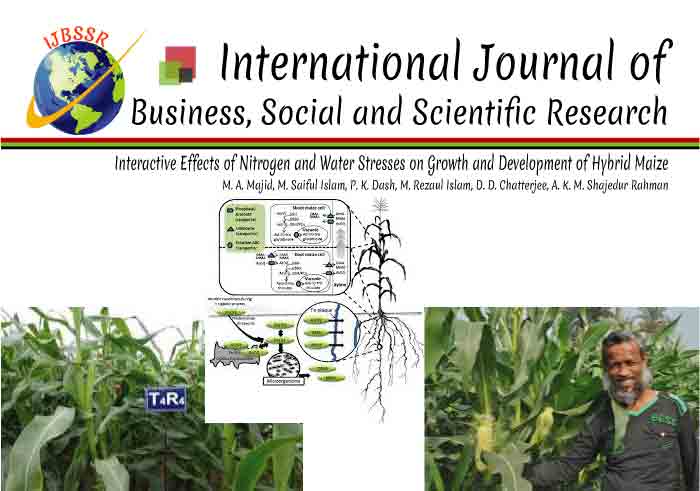INTERACTIVE EFFECTS OF NITROGEN AND WATER STRESSES ON GROWTH AND DEVELOPMENT OF HYBRID MAIZE

The study was therefore, undertaken to determine the suitable levels irrigation and nitrogen rates for enhanced growth and grain yield of hybrid maize. The research was conducted at the farmer field in the Chalan Bill Flood Plain at Natore District in Bangladesh, during 2013-14 to field study effects of irrigation levels and nitrogen rates on hybrid maize. Maize has high growth potential and responds well to different management practices. Among various management practices, irrigation and nitrogen play a significant role in realizing the maximum potential of the crop. Irrigation scheduling is the technology for applying the proper amount of water at the right time. Reasons for using irrigation scheduling are to reduce water applications, energy consumption and deep percolation of water below the crop root zone. Water is further required to provide constant turgor pressure that supports the plant and facilitates cell enlargement after cell division has been initiated. Hence, plant growth and survival depend on adequate water availability. Irrigation also improves the efficiency of fertilizer utilization by the crop. Increases in irrigation frequency increased N uptake by maize. Maximum growth and greater water use efficiency were achieved when irrigating to 100% of field capacity. Nitrogen deficiency did not improve drought resistance of field-grown maize, as has sometimes been suggested.

